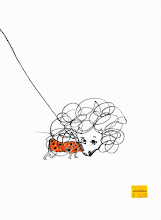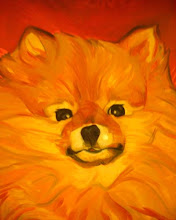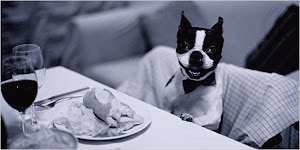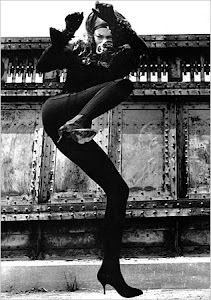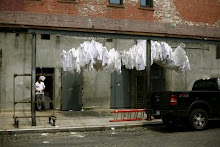I suspect this book is what is known as a "romp." It is wry, funny, ridiculous and yet hits at many truths despite its Alice Through the Looking Glass aspects.
The biggest truth is, of course, the truth about weakness and I will hammer away at this so all bored by it should leave now. See, weak people are destructive people. They want to avoid responsibility and certainly cannot bear to actively hurt anyone but man o man, what havoc they end up being responsible for. In this book, Martin is the weakest of the weak and he manages to burn down a town, send his brother into a life of crime, blind a man, break a few hearts, send a woman to her death. All for wishy washing around.
Yet sins of the fathers are not necessarily borne by the sons. Martin's son Jasper shows some strength of character in spite of himself, even though at one point he is shamed to admit that his one passionate decision is to murder someone. Well, it's that kind of book, it kind of works at a certain pitch.
The book is nicely cynical, too. In one instance the players are admiring a sunset, a vivid and extravagantly coloured spectacle made so by smog -- an instance where man's doing surpasses God's.
Ostensibly this is an amusing tale of family and character. Family. Can't live with 'em, can't shoot 'em.
Well, in THIS family, maybe you can.......
Wednesday, September 26, 2007
Friday, September 14, 2007
A room of one's own.
 Misery loves company. Does it? Actually, no, I don't think so, I think misery loves solitude and the comforts of hiding under a pile of coats. As well, I have never approved of the "it could be worse" school of thought. What is that, something to look forward to? That even in grief you are outdone by others?
Misery loves company. Does it? Actually, no, I don't think so, I think misery loves solitude and the comforts of hiding under a pile of coats. As well, I have never approved of the "it could be worse" school of thought. What is that, something to look forward to? That even in grief you are outdone by others?Of late, and at the behest of someone looking out for my improved psyche, I have been reading books on the subject of surviving childhood. Many quirks of personality it seems are actually old, fossilized habits learned long ago to offset the power and control of those who looked after us. Lots of the characteristics of those around us are also based on these primal fears and deprivations -- how anyone survives childhood is a central mystery and we should all try our best to be reincarnated as beloved cats. Hell is other people? Hell is being people.
We may survive the past but do we thrive, and what changes are indelibly wrought by the baroque cruelties suffered? Here's the thing. I don't adhere to the idea that to be an artist one must suffer, but suffering does sometimes lead to beauty. Think of natural wonders of the world -- it's the stress that creates the diamond. And here we come to Henry Darger.
A friend sent m
 e the images here, and suggests this book is incredible. Why? Here is what she says: "Incredibly interesting (albeit sadder than sad), self taught artist/writer, a recluse, a janitor. These photos reveal the tone of his environment in a very intimate and quiet way. Here's the photo that inspired him to begin his writings."
e the images here, and suggests this book is incredible. Why? Here is what she says: "Incredibly interesting (albeit sadder than sad), self taught artist/writer, a recluse, a janitor. These photos reveal the tone of his environment in a very intimate and quiet way. Here's the photo that inspired him to begin his writings."She goes on to say "I like this excerpt from the guardian: Why is Darger so popular? Many would argue that it's because his art is truly different and truly beautiful. That may be so. What is certain is he led a life of such suffering, neglect and isolation that he makes Vincent van Gogh look like a party-going fat cat."
You want to come back as a cat. Trust me.
Thursday, September 6, 2007
A Fraction of the Whole

The weak shall inherit the earth the slidey bastards and you want to know why? Because they don't care about anything but their own weakness and so they can crash, burn, wreck and ruin like nobody's business. They really are terrible to have around.
A Fraction of the Whole by Steve Toltz spells all this out very succinctly. We have Martin our fifth-business who instigates all sorts of things in his slidey weak way. Like what? Like getting his brother not just into trouble but into crime because HE, Martin, didn't want to get beat up in a schoolyard fight.
How so you ask? Pretty easy when you're a weak bastard. Martin was in trouble with the bullies and so told his avid little brother, a terrific sportsman, a phenomenal athlete, that the bullies were CHEATERS. Well. Gasoline to a bonfire. The little brother goes on to beat up the bullies and the bullies stab him in the leg, ending his sports career. Then they tell him that so long as he joins their lives of crime they won't kill Martin (big loss if you ask me but I'm not the little brother in this one.) The brother, Terry, takes to crime like fish to algae and goes on cleaning the world of cheaters.
Terry, you see, believes in something. Martin not so much. So he goes on wreaking havoc by trying to slide out of things left right and centre.
The Martin story is very funny and I'd tell you more but I'm not finished yet. But it's pretty clear, weak wins. Well, maybe the weak don't WIN but they don't seem to get hurt or roughed up much either so we might as well call it winning.
A Fraction of the Whole by Steve Toltz spells all this out very succinctly. We have Martin our fifth-business who instigates all sorts of things in his slidey weak way. Like what? Like getting his brother not just into trouble but into crime because HE, Martin, didn't want to get beat up in a schoolyard fight.
How so you ask? Pretty easy when you're a weak bastard. Martin was in trouble with the bullies and so told his avid little brother, a terrific sportsman, a phenomenal athlete, that the bullies were CHEATERS. Well. Gasoline to a bonfire. The little brother goes on to beat up the bullies and the bullies stab him in the leg, ending his sports career. Then they tell him that so long as he joins their lives of crime they won't kill Martin (big loss if you ask me but I'm not the little brother in this one.) The brother, Terry, takes to crime like fish to algae and goes on cleaning the world of cheaters.
Terry, you see, believes in something. Martin not so much. So he goes on wreaking havoc by trying to slide out of things left right and centre.
The Martin story is very funny and I'd tell you more but I'm not finished yet. But it's pretty clear, weak wins. Well, maybe the weak don't WIN but they don't seem to get hurt or roughed up much either so we might as well call it winning.
Saturday, September 1, 2007
Jekyll & Hyde
It's good to have friends who read, because they do a lot of the legwork for you. One good friend and terrific reader recently told me he had read Dr. Jekyll and Mr. Hyde for the first time, in fact read Robert Louis Stevenson for the first time, while on vacation in Jamaica and was so mesmerized by it and so enchanted by the good writing he's now on to (what may have been more appropos in the first place) Treasure Island.
Now, it is not many who would take a misty and dark gothic horror to the beach. Yet fewer would be riveted while the sun plays on the waves and screaming children make sand castles but there you have it. But he spoke so highly this book has been on my list ever since. He once said to me, when I was complaining about how hard it is to find a really good book among any season's new releases, "Why do you waste your energy when there is so much that is tried, true and has passed the test of time?" He sent me on the path of Iris Murdoch, splendidly prolific and a rich vein should you like her work. Sigh. Back to Sue Grafton.
As I am still avoiding any book with anything to do with love (why o why is every damn book about love? honestly, as a culture we are obsessed with love. Why when there's so many of us are people still alone??) I took J&H with me to the country house where I do my best reading. It is back to school time at my local bookstore and there were piles of "classics" on the first table you trip on, prominent among them being this one and it seemed sort of a sign from God.
Imagine my distress when I opened the book and discovered that it is one among SIX "books" in a rather narrow tome.
I asked Kristin, a publisher and whose house I was in, if this could possibly be right. Is Jekyll and Hyde a SHORT STORY??
"I have no idea I've never read Stevenson. Or Dickens. Let me look at the book," she said, helpfully. She read the copyright page and a few others that tell things to publishers and handed it back. "Ask Tom."
Now, Tom has been in publishing since Christ was a cowboy and all Kristin and Tom's homes are made tinier for being lined with every book ever published in this fair land. Even the bad ones. Of which there are, sadly, many. You'd think he'd know about so commonplace a "classic."
"I have no idea. Ask Rebecca," he said. Rebecca is sixteen and had no interest in this exchange, as she was deeply immersed in Blindness, a book I have never been able to make head nor tail of. I think it's about a bunch of people who go blind for some reason.
I was loathe to read a book that might be a fake, to spend the time on the wrong thing but plunged ahead anyway. My Reader had said the fascinating thing is Hyde (the scary one) freaks people out, they feel immediately cold and unsafe in his presence but there is virtually no description of what he looks like, he is faceless and amorphous.
In fact no one and nothing is much described in this novella, as I have learned it definitively is. The premise is interesting. Jekyll wants to obliterate his dark side, and so invents a potion that separates him from his monster. Hyde becomes his alter-ego, so that he is all good, the other is all bad. The problem is, as time goes on it is harder and harder to revert back to Jekyll, it takes more potion and more energy and more time until eventually Hyde is the ego, and Jekyll all but disappears.
Stunning to me is the psychological relevance of this -- and this, before Freud had committed a word to paper. Try to supress that which is negative and it will grow and destroy you. It will BECOME you. What you fear becoming is what you will be, if you cannot integrate and synthesize the pain of it. Think of what ensues with those who supress sexuality, or those who want to be seen as ONLY sweet-natured and then turn passive-aggressive and truly horrible. Interesting that this and other stories came out in the suppressive Victorian era. The artists were clear about the destruction they saw, and no one heard a word.
I liked also that the bad part could be hived off with a potion -- hello cocktail hour.
Fascinating really, essential reading for Psych 101.
Smart guy, this Stevenson.
Now, it is not many who would take a misty and dark gothic horror to the beach. Yet fewer would be riveted while the sun plays on the waves and screaming children make sand castles but there you have it. But he spoke so highly this book has been on my list ever since. He once said to me, when I was complaining about how hard it is to find a really good book among any season's new releases, "Why do you waste your energy when there is so much that is tried, true and has passed the test of time?" He sent me on the path of Iris Murdoch, splendidly prolific and a rich vein should you like her work. Sigh. Back to Sue Grafton.
As I am still avoiding any book with anything to do with love (why o why is every damn book about love? honestly, as a culture we are obsessed with love. Why when there's so many of us are people still alone??) I took J&H with me to the country house where I do my best reading. It is back to school time at my local bookstore and there were piles of "classics" on the first table you trip on, prominent among them being this one and it seemed sort of a sign from God.
Imagine my distress when I opened the book and discovered that it is one among SIX "books" in a rather narrow tome.
I asked Kristin, a publisher and whose house I was in, if this could possibly be right. Is Jekyll and Hyde a SHORT STORY??
"I have no idea I've never read Stevenson. Or Dickens. Let me look at the book," she said, helpfully. She read the copyright page and a few others that tell things to publishers and handed it back. "Ask Tom."
Now, Tom has been in publishing since Christ was a cowboy and all Kristin and Tom's homes are made tinier for being lined with every book ever published in this fair land. Even the bad ones. Of which there are, sadly, many. You'd think he'd know about so commonplace a "classic."
"I have no idea. Ask Rebecca," he said. Rebecca is sixteen and had no interest in this exchange, as she was deeply immersed in Blindness, a book I have never been able to make head nor tail of. I think it's about a bunch of people who go blind for some reason.
I was loathe to read a book that might be a fake, to spend the time on the wrong thing but plunged ahead anyway. My Reader had said the fascinating thing is Hyde (the scary one) freaks people out, they feel immediately cold and unsafe in his presence but there is virtually no description of what he looks like, he is faceless and amorphous.
In fact no one and nothing is much described in this novella, as I have learned it definitively is. The premise is interesting. Jekyll wants to obliterate his dark side, and so invents a potion that separates him from his monster. Hyde becomes his alter-ego, so that he is all good, the other is all bad. The problem is, as time goes on it is harder and harder to revert back to Jekyll, it takes more potion and more energy and more time until eventually Hyde is the ego, and Jekyll all but disappears.
Stunning to me is the psychological relevance of this -- and this, before Freud had committed a word to paper. Try to supress that which is negative and it will grow and destroy you. It will BECOME you. What you fear becoming is what you will be, if you cannot integrate and synthesize the pain of it. Think of what ensues with those who supress sexuality, or those who want to be seen as ONLY sweet-natured and then turn passive-aggressive and truly horrible. Interesting that this and other stories came out in the suppressive Victorian era. The artists were clear about the destruction they saw, and no one heard a word.
I liked also that the bad part could be hived off with a potion -- hello cocktail hour.
Fascinating really, essential reading for Psych 101.
Smart guy, this Stevenson.
Subscribe to:
Comments (Atom)
